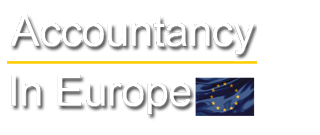Corporation Tax is the tax paid by companies on their profits. Unincorporated organisations such as clubs and societies also qualify to pay Corporation Tax if they have taxable income. Partners in both Limited Liability Partnerships and Sole Traders pay Income Tax instead.
If you use accountants to prepare your year-end figures, or auditors to check them, they will be able to calculate your Corporation Tax liability too. It is important not to ignore Corporation Tax payments until the year end, as the accumulation of tax from your annual business activities will have a huge impact on your final bill and significantly affect your business finances.
In the European Union, the lowest Corporate Tax rates are to be found in Bulgaria and Cyprus at (10 %,) Ireland (12.5 %,) Latvia and Lithuania (15 %,) and Romania (16 %.) The highest is Belgium, at nearly 34%. Figures released by Eurostat recently showed that the average Corporate Tax rate among the 27 EU member states was 23.5% in 2012, up from 23.4% in 2011. The increase bucks the trend for the last 11 years where the average rates have fallen consistently from a high of 31.9% in 2000.
In the last decade or so, there has been a big shift in marginal tax rates. Most countries dropped their highest Corporate Tax rate over that period, and some of the biggest top tax bracket reductions were seen in Germany—which went from 52.3% in 1999 to below 29.4% in 2011.
Tax is levied on all profits made during an accounting period and can arise from different sources. These include; trading profits, capital gains, income from letting out land or buildings, and interest on money held on deposit.
The geographical basis for the charge of Corporation Tax depends on where the company is based for tax purposes. Companies resident in the UK pay Corporation Tax on their worldwide profits. Companies resident elsewhere normally pay Corporation Tax only on their profits from a UK branch or agency. Non-UK profits are generally taxed often at higher rates elsewhere.

